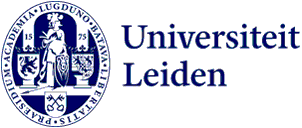11 search results for “inequality” in the Public website
-
Welfare, social citizenship, and the spectre of inequality in Amsterdam
This article explores how notions of citizenship are negotiated in encounters between parents and youth care professionals in Amsterdam in the context of heated debates over citizenship and belonging. We draw on ethnographic research on Egyptian migrant parents’ interactions with the welfare state,…
-
In-Forest: A multi-method study of inequality and its epistemic effects in forest research
The project seeks to explore the interplay of valuation and inequalities in science, using the interdisciplinary and planet-critical field of forest research as empirical case. It examines which/whose knowledge is recognised on what grounds, and how social dimensions like gender and geographical location…
-
Emma van der Vos on curbing income inequality
Excessive remuneration of top executives often sparks heated debate in the Netherlands. Ministers are summoned to Parliament, where they then tend to wholeheartedly condemn the 'grabbing' going on at the top of the corporate sector. But that’s where it stops. Tackling excessive remuneration seems to…
-
 Tycho van Tartwijk
Tycho van TartwijkFaculteit der Sociale Wetenschappen
t.van.tartwijk@fsw.leidenuniv.nl | +31 71 527 2727
-
 Maria Gabriela Palacio Ludeña
Maria Gabriela Palacio LudeñaFaculty of Humanities
m.g.palacio.ludena@hum.leidenuniv.nl | +31 71 527 2189
-
 Kelly Ziemer
Kelly ZiemerFaculteit der Sociale Wetenschappen
k.l.ziemer@fsw.leidenuniv.nl | +31 71 527 2727
-
 Bernhard Rieger
Bernhard RiegerFaculty of Humanities
b.rieger@hum.leidenuniv.nl | +31 71 527 1290
-
 Leticia Rettore Micheli
Leticia Rettore MicheliFaculteit der Sociale Wetenschappen
l.rettore.micheli@fsw.leidenuniv.nl | +31 71 527 2727
-
Percentage of female professors rises to over 30 percent
The percentage of female professors at Leiden University has risen to 30.2%. These are the results of the Women Professors Monitor 2021, which was published by the Dutch Network of Women Professors (LNVH). This shows that Leiden University is well above the national average of 25.7%.
-
Cities, migration and global interdependence
The key subject of the research programme Cities, Migration and Global Interdependence 1500-now (CMGI) is Inequality (at local, national and global levels). We study this from an intersectional perspective: gender, class, ethnicity or race, religion, sexuality, age, ability/disability, citizenship and…
-
Rethinking Disability: the Global Impact of the International Year of Disabled Persons (1981) in Historical Perspective
How did disability become a global concern? In this project we will identify the contribution of international agencies, governmental and non-governmental organizations and, just as importantly, disabled people themselves, to the IYDP and by showing the connections, interactions and entanglements between…
